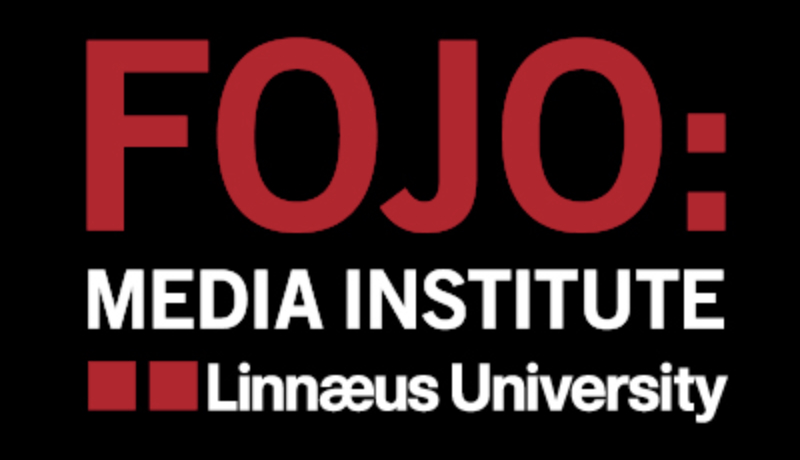
Media Helping Media is hosted by the Fojo Media Institute and is one of its official training resources.
From our BASIC JOURNALISM section
How to spot a news story
What are the telltale signs that help journalists distinguish fact from fiction, and how do they know when they have uncovered an important news story?
How to produce strong news stories
Good stories about any topic generally have some things in common. Here are 12 points to keep in mind when you are planning, researching and producing a news story.
From our EDITORIAL ETHICS section
Integrity and journalism
Without integrity your journalism is untrustworthy and suspect. Integrity is essential if a journalist wants to investigate issues, shine a light in dark places, and to dig where others don't.
Why editorial ethics are important
The Media Helping Media ethics section is designed to help journalists understand and navigate some of the challenges they are likely to face as they go about their work.
From our ADVANCED JOURNALISM section
The role of AI in the newsroom
Three excellent free training resources designed to help newsrooms "learn about the opportunities" and "support and grow all aspects of a news operation" by embracing AI.
Fake news and trust chains
Here we discuss fake news or false news. We look at what these terms mean for journalists, the different kinds of fake news, and how to combat fake or false news through good practice and the use of trust chains.
 Unfortunately, Facebook has decided to disable our Media Helping Media Facebook group. Our Facebook page is still live.
Unfortunately, Facebook has decided to disable our Media Helping Media Facebook group. Our Facebook page is still live.
 Do you have any wisdom to share with those without access to formal training? If so please get in touch.
Do you have any wisdom to share with those without access to formal training? If so please get in touch.
 Media Helping Media (MHM) provides free training resources for those starting off in journalism. Read more …
Media Helping Media (MHM) provides free training resources for those starting off in journalism. Read more …
 The content on Media Helping Media (MHM) is released via Creative Commons BY NC SA 4.0. Please read the MHM copyright terms.
The content on Media Helping Media (MHM) is released via Creative Commons BY NC SA 4.0. Please read the MHM copyright terms.
How to investigate official documents
The investigative journalist never takes things at face value. They probe and question in order to get to the truth. If you are to uncover the story you need to keep asking questions.
Tips for investigative journalism
The following are some of the points from a training session given by Marcus Tanner to the Balkan Fellowship for Journalistic Excellence setting out how to produce a piece of investigative journalism.
10 tips for investigating corruption
An investigative journalist has to plot the geometry of bribery, determine the currency of influence, document the paper trail, and deal with threats and retaliation when investigating corruption.
Story weighting system for breaking news
Introducing a story weighting system helps prioritises effort on the stories that are of most value to the target audience, it saves time, speeds up production, and helps avoid wasted effort.
Story development, ensuring all angles are covered
Asking the questions that need to be asked
In a previous module we looked at the topic of proactive journalism, where journalists are encouraged to...
Getting the best out of a news meeting
Most newsrooms hold regular news meetings where the editor sets out what news stories are going to be covered and invites the news team to offer ideas about how the news should be developed and covered.
Establishing a market differential with original journalism
This module is about producing original, in-depth, issue-led journalism designed to inform the public debate and meet the needs of your target audience while giving you a market differential.
Preparing and introducing a media corporate plan
The corporate plan is the most important tool in a media chief executive’s toolbox. Without it the media organisation can become lost and directionless.
Creating a converged news operation
A converged news operation offers improved quality control, more efficient workflows, cost savings, a steady flow of original journalism across all devices, and new resulting business opportunities.
Emotional assumptions – scenario
Try our scenario on how to remain objective when reporting from a live event. It's about how to avoid 'heat of the moment' language and stick to facts.
Withholding information – scenario
You are about to publish an article about a local business which is offering a service for a paid-for subscription. Before you publish you are informed that a similar service is being offered by a community project which is totally free-of-charge. What do you do?
Legal threats – scenario
Journalists often come under pressure with threats of legal action if they don't publish or broadcast what others want. In this scenario we look at a scenario where a reporter is sent a cease and desist letter and told legal action will be taken against them if they don't add 'positive-spin' to an article.
Maximising the impact of media training
Thorough research is the essential if you are to deliver high-impact media training. Never accept a brief from media managers without question - they could be wrong and often are.
Basic rules for delivering training
One of the first steps in delivering training is to articulate the ground rules. Participants need to know what to expect, what is expected of them and how you intend to schedule course elements.
Five essential steps for media training
For international media training to be successful, tried, tested and proven case studies from a similar region are needed. Theory has limited value, as do examples of what works in the West.




